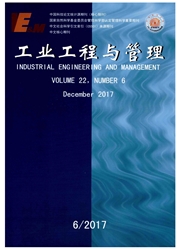

 中文摘要:
中文摘要:
研究了消费者预期后悔对传统服务商和新兴服务商竞争策略的影响,考虑三种不同的市场结构,分别建立了DL、OL、NL预期后悔模型,并求出了各个模型的均衡解,其中DL、OL、NL分别表示双寡头领导者、传统服务商领导者以及新兴服务商领导者市场。研究表明:创新产品价格总是与后悔系数呈负相关,而传统产品价格与后悔系数的关系取决于市场结构和产品的差异性;新兴服务商总是具有"次动优势",而产品差异性较小时,传统服务商具有"先动优势";OL和DL模型中,消费者剩余与后悔系数呈负相关,NL模型中,消费者剩余与后悔系数呈正相关。
 英文摘要:
英文摘要:
Considering the impact of consumer's anticipated regret on competitive strategies of service providers, this paper constructed the DL model, OL model and NL model, and calculated the equilibrium solution of each model. In these models, NL was the duopoly leader, OL was traditional service leader, and NL was emerging market service leader. Result showed that, firstly, there was negative correlation between innovative product' price and consumer's anticipated regret, while, the relationship between traditional product' price and consumer's anticipated regret depended on marketing structure and product differentiation. Secondly, traditional service providers held first-mover advantages when product differentiation is small, while, innovative service providers always held second-mover advantage. It also found that, there was negative correlation between consumer surplus and consumer's anticipated regret in DL model and OL model, but had the positive correlation between consumer surplus and consumer's anticipated regret in NL model.
 同期刊论文项目
同期刊论文项目
 同项目期刊论文
同项目期刊论文
 期刊信息
期刊信息
